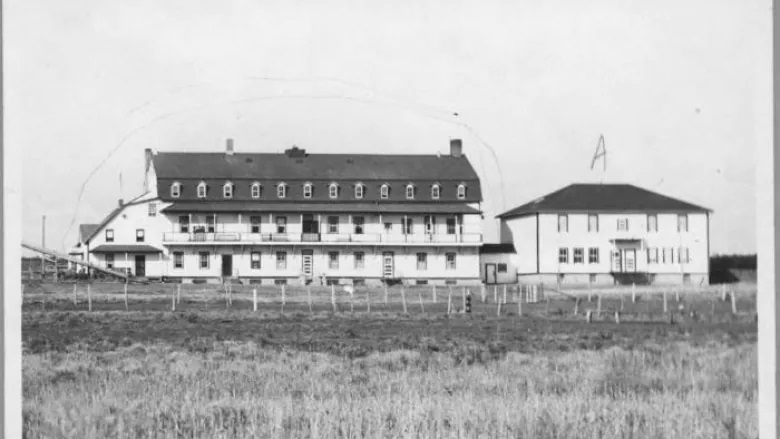(CANADA)
CBC (Canadian Broadcasting Corporation) [Toronto, Canada]
August 28, 2021
By Madeleine Cummings
Ermineskin Cree Nation, Kapawe’no First Nation launch investigations
WARNING: This story contains distressing details.
Two First Nations in northern Alberta have begun investigations of former residential school grounds.
In separate news releases this month, Ermineskin Cree Nation and Kapawe’no First Nation said ground-penetrating radar would be used to search areas around Ermineskin Indian Residential School and Grouard Indian Residential School for unmarked graves.
Ermineskin Cree Nation is about 100 kilometres south of Edmonton and Kapawe’no First Nation is nearly 400 kilometres northwest of Edmonton.
“This will be an incredibly difficult time for our Nation members, and others who had loved ones attend the Grouard Mission,” Kapawe’no First Nation Chief Sydney Halcrow said in a news release.
“However, we must unearth the truth and bring our people home.”
According to a news release from Ermineskin Cree Nation, a team of engineers from SNC Lavalin — under the direction of an advisory committee of elders — is conducting the search, and so far, “no anomalies of concern have been identified.”
Perry Omeasoo, who was forced to attend the Ermineskin Indian Residential School for three years when he was a child in the mid-1960s, said the search is important to him because it could reveal evidence and bring some closure.
He said a lot of people were abused at the school, himself included, yet he has seen some Albertans deny survivors’ stories.
“As a survivor, you want it to be acknowledged that these events occurred,” said Omeasoo, who now lives in Squamish, B.C.
“I want the world to know,” he said.
Kapawe’no First Nation invited a team from the Institute of Prairie and Indigenous Archaeology at the University of Alberta to assess areas around the Grouard Residential School earlier this month.
In a news release from the First Nation, the institute’s director, Kisha Supernant, said her team participated in ceremony, attended gatherings and listened to stories from residential school survivors.
“The work to find the truth will take time, care and patience,” she said in the release.
Ahead of those meetings, Gerard Pettipas, Archbishop of Grouard-McLennan, penned a letter to the First Nation.
“Finding and identifying unmarked graves will not solve all of our problems,” he wrote.
“But it is one of many small steps that we all must take together, Indigenous and non-Indigenous, to create a more just and respectful society, where the rights and aspirations of all people are honoured and upheld.”
According to the National Centre for Truth and Reconciliation (NCTR), Catholic missionaries established both schools in the late 1800s.
The NCTR has records of 15 students dying at Ermineskin Indian Residential School and 10 students dying at Grouard Indian Residential School.

The centre’s website says Ermineskin Residential School operated until 1975 and Grouard, which was also known as St. Bernard’s, operated until 1957.
Support is available for anyone affected by their experience at residential schools, and those who are triggered by the latest reports.
A national Indian Residential School Crisis Line has been set up to provide support for former students and those affected. People can access emotional and crisis referral services by calling the 24-hour national crisis line: 1-866-925-4419.
[FROM CBC – Do you know of a child who never came home from residential school? Or someone who worked at one? We would like to hear from you. Email our Indigenous-led team investigating the impacts of residential schools at wherearethey@cbc.ca or call toll-free: 1-833-824-0800.]
